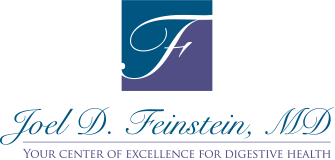IBS is not the same as IBD
Inflammatory bowel disease (IBD) consists of ulcerative colitis and Crohn’s disease. Both are characterized by varying degrees of inflammation and ulceration of the bowel. Damage results in the common symptoms of diarrhea, abdominal pain and rectal bleeding. The development of IBD is a complex interplay between genetic predisposition, the environment, and your immune system.
Ulcerative colitis only affects the colon (large intestine). The lining of the colon is the target of inflammation. Patients almost always have rectal bleeding and diarrhea, and varying degrees of lower abdominal pain. Symptoms can be intermittent.
Crohn’s disease differs in many ways from ulcerative colitis. It can damage any part of the digestive tract but most commonly targets the small and/or large intestine. The entire wall of the bowel, not just the lining, is affected in Crohn’s disease. However, patients can have similar symptoms to ulcerative colitis if only the colon is involved. There tends to be more abdominal pain, weight loss and vomiting due to the various locations of Crohn’s disease involvement and because the wall of the intestine and not just the lining is involved.
IBD is a complex disease. Heredity, genetics, environmental factors, and immunology all have a role in the development of the disease. More than 1.5 million Americans have IBD.
Risks for IBD:
- Family history – 10 to 30 times greater risk of developing IBD if a close relative has been diagnosed
- Ashkenazi Jewish ancestry
- Smoking (Crohn’s disease)
- Western diet, highly processed food (Crohn’s disease)
A detailed history and thorough physical examination are the first step. A number of different tests are normally required to complete the assessment to make an accurate diagnosis. These studies may include blood tests for specific markers for IBD, colonoscopy, radiology (CT scan or MRI). Occasional video capsule studies are also necessary. There are a number of therapies that are useful in helping the patient achieve remission and return to normal function. Yet, there is still not a cure. Exciting research into the role of genes, immune regulation and the role of bacteria are leading the way to even more promising new treatments. These approaches will help allow a more personalized approach for the patient.
Our IBS/IBD patients come to us from Sherman Oaks, Los Angeles, Beverly Hills, Hollywood and Santa Monica in Los Angeles County, CA. To learn more about IBS and IBD treatment, call us at 310.652.5021 with your questions. You can also use our online Request an Appointment form to schedule your one-on-one, personal time with gastroenterologist Dr. Joel Feinstein.





